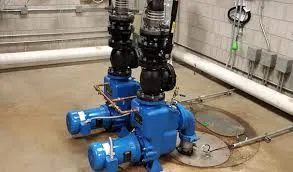Icelandic
- Afrikaans
- Albanian
- Amharic
- Arabic
- Armenian
- Azerbaijani
- Basque
- Belarusian
- Bengali
- Bosnian
- Bulgarian
- Catalan
- Cebuano
- Corsican
- Croatian
- Czech
- Danish
- Dutch
- English
- Esperanto
- Estonian
- Finnish
- French
- Frisian
- Galician
- Georgian
- German
- Greek
- Gujarati
- Haitian Creole
- hausa
- hawaiian
- Hebrew
- Hindi
- Miao
- Hungarian
- Icelandic
- igbo
- Indonesian
- irish
- Italian
- Japanese
- Javanese
- Kannada
- kazakh
- Khmer
- Rwandese
- Korean
- Kurdish
- Kyrgyz
- Lao
- Latin
- Latvian
- Lithuanian
- Luxembourgish
- Macedonian
- Malgashi
- Malay
- Malayalam
- Maltese
- Maori
- Marathi
- Mongolian
- Myanmar
- Nepali
- Norwegian
- Norwegian
- Occitan
- Pashto
- Persian
- Polish
- Portuguese
- Punjabi
- Romanian
- Russian
- Samoan
- Scottish Gaelic
- Serbian
- Sesotho
- Shona
- Sindhi
- Sinhala
- Slovak
- Slovenian
- Somali
- Spanish
- Sundanese
- Swahili
- Swedish
- Tagalog
- Tajik
- Tamil
- Tatar
- Telugu
- Thai
- Turkish
- Turkmen
- Ukrainian
- Urdu
- Uighur
- Uzbek
- Vietnamese
- Welsh
- Bantu
- Yiddish
- Yoruba
- Zulu
Telephone: +86 13120555503
Email: frank@cypump.com
des . 11, 2024 06:59 Back to list
sewagepump
The Importance of Sewage Pumps in Modern Infrastructure
Sewage pumps play a crucial role in maintaining the sanitary systems that underpin modern infrastructure. As urban populations continue to grow and expand, the need for effective waste management systems becomes increasingly vital. These pumps are responsible for transporting wastewater and sewage from lower to higher elevations, ensuring that waste is processed efficiently and preventing environmental contamination.
A sewage pump is designed to handle the solid waste and water that flow through residential and commercial sewage systems. Located in basements, lift stations, and waste treatment facilities, these pumps are engineered to cope with challenging conditions, including the presence of solids, grease, and sludge. The two primary types of sewage pumps are submersible and pedestal pumps, each with its unique advantages and applications.
The Importance of Sewage Pumps in Modern Infrastructure
On the other hand, pedestal sewage pumps are mounted above the sewage level, making them easier to access for maintenance and repair. This design allows for better airflow and cooling, extending the pump's lifespan. While pedestal pumps can be more straightforward to service, they are generally larger and occupy more space than submersible models. Both types serve a critical function in preventing sewage backup and ensuring that waste is directed to treatment facilities.
sewagepump

The operation of sewage pumps is not only integral to public health but also to environmental conservation. Inefficient sewage disposal can lead to severe health hazards and contamination of waterways, posing risks to both human and wildlife populations. Properly functioning sewage pumps help to prevent overflows and blockages, thereby safeguarding local ecosystems.
In addition to safeguarding public health, sewage pumps play a vital role in urban planning and development. As cities grow, managing the ever-increasing volume of waste becomes a pressing challenge. Innovative sewage pump systems can adapt to changing urban landscapes, allowing for dense development while mitigating the environmental impact. Many modern sewage pumps are now equipped with smart technology, enabling remote monitoring and diagnostics. This advancement ensures that any potential issues are detected early, reducing the likelihood of catastrophic failures and costly repairs.
Moreover, the selection and maintenance of sewage pumps are essential for their longevity and performance. Regular inspections and servicing can prevent many common problems, such as clogs and mechanical failures. Furthermore, understanding the specific needs of a property—including flow rates, lift requirements, and potential solids content—is critical when selecting a sewage pump. This tailored approach not only enhances efficiency but also minimizes energy consumption and operational costs.
In conclusion, sewage pumps are an indispensable component of modern wastewater management systems. Their ability to efficiently transport sewage and wastewater is essential for protecting public health and the environment. As technology advances, these systems are becoming increasingly innovative, allowing for smarter and more efficient waste management solutions. Communities must recognize the importance of investing in reliable sewage pump systems to ensure the safe and sustainable management of waste, paving the way for healthier urban environments.
-
ISG Series Vertical Pipeline Pump - Chi Yuan Pumps Co., LTD.|Advanced Hydraulic Design&Energy-Efficient Solutions
NewsJul.30,2025
-
ISG Series Vertical Pipeline Pump - Chi Yuan Pumps Co., LTD.
NewsJul.30,2025
-
ISG Series Vertical Pipeline Pump - Chi Yuan Pumps Co., LTD.|energy-efficient fluid handling&industrial durability
NewsJul.30,2025
-
ISG Series Vertical Pipeline Pump - Chi Yuan Pumps | Advanced Engineering&Industrial Efficiency
NewsJul.30,2025
-
ISG Series Pipeline Pump - Chi Yuan Pumps | High Efficiency, Energy Saving
NewsJul.30,2025
-
ISG Series Vertical Pipeline Pump-Chi Yuan Pumps|High Efficiency&Reliable Performance
NewsJul.29,2025










